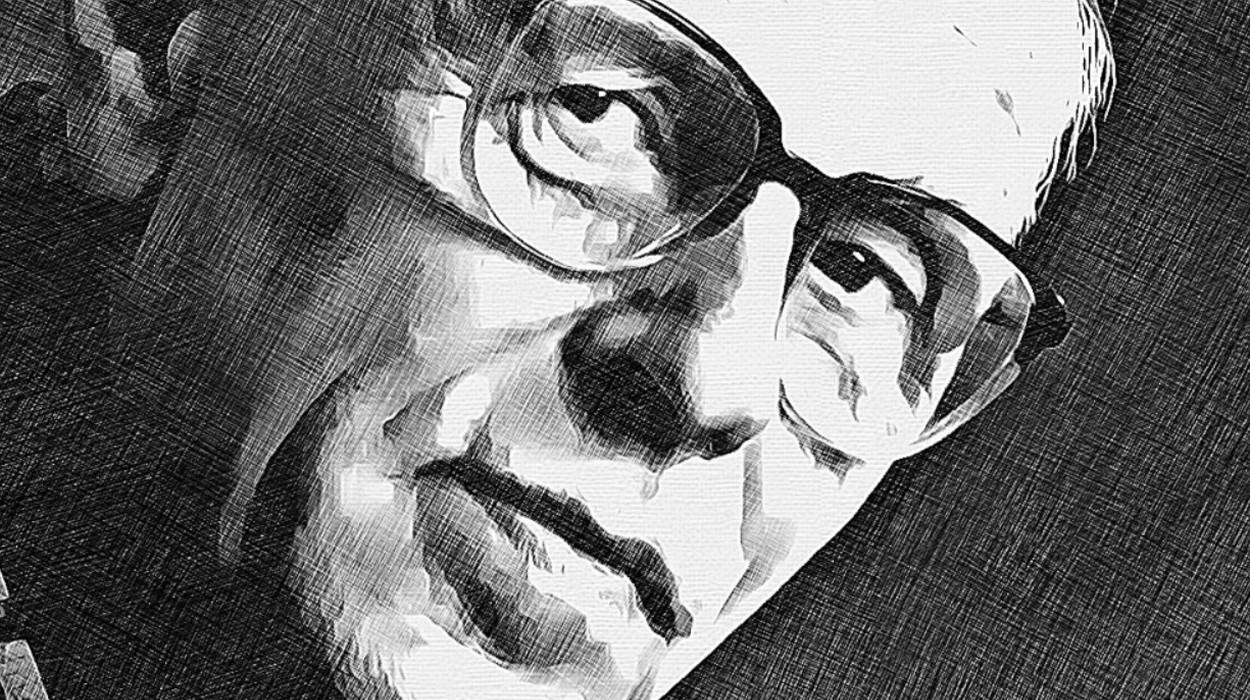Andrej Sakharov’s ‘Mini-empires’ and the Inevitable, by George Hewitt

Andrei Sakharov (1921 – 1989), Soviet nuclear physicist, dissident, nobel laureate and activist for nuclear disarmament, peace, and human rights.
Discordant Neighbours: A Reassessment of the Georgian-Abkhazian and Georgian-South Ossetian Conflicts, by B. George Hewitt
Eurasian Studies Library, Volume: 3 (Brill 2013) - pp.81-83
In an article carrying the title ‘Level of Freedom’ (Stepen′ svobody) in the Russian journal Ogonëk (Flame) of 31 July, the most famous Russian dissident, the late Andrej Sakharov, who had declined to participate in the official Commission established to investigate the 9th-April tragedy because of his complex relations with K’ost’ava and Gamsakhurdia, had referred to the USSR’s constituent-republics as ‘mini-empires’, singling out Georgia for special mention in his discussion of the extent and nature of the control that republican centres were allowed to exercise within their respective fiefdoms. The late historian-archæologist Yuri Voronov, writing in 1992, gave an illustration of control from the academic sphere (p. 259):
Already in the 1930s the history of the peoples of the USSR was placed in the hands of the Academies of Sciences of the 15 Union Republics, where social scientists at once became appendages of the ideological structures whose purpose was to prove the superiority of the native peoples over the non-native, of the large nations over the small. In practical terms this led to the extinction of the more objective schools of Caucasology in Leningrad (St. Petersburg) and Moscow.
But a more detailed characterisation of the excesses to which local sovereignty could lead and because of which Sakharov specifically accused Georgia of being consumed with a ‘chauvinistic psychosis’ can be found in the citations adduced from an article by Vasilij Abaev in the Postscript appended to the present chapter.
+ Andrei Sakharov on the relationship between Abkhazia and Georgia
+ Stanislav Lakoba: "Sakharov had an interest in Abkhazia through Iskander"
+ Zviad Gamsakhurdia: “Abkhaz Nation Doesn’t Exist!”
Not surprisingly, Gamsakhurdia was one of those who contributed to the predictable backlash against Sakharov’s article. His Open Letter was published first in the Georgian paper Kartuli Pilmi ‘Georgian Film’ on 6 September (p. 2) and later in Russian translation entitled ‘Level of Objectivity’ in Vechernyj Tbilisi ‘Evening Tbilisi’ on 12 September (p. 3), alongside a fragment of Sakharov’s original. Gamsakhurdia wrote:
But these days the Circassian tribe of Apswas, who are related to the North Caucasian Cherkess and who from the XVIIth century have been setting out to seize control of historical Abkhazia’s northern, mountainous part, to effect the assimilation of the Georgian population, and to take root there (see Academician N. Berdzenishvili Problems in the History of Georgia vol. VIII),[56] are wrongly called ‘Abkhazians’[57] … Georgia was punished because it rejected Bolshevism; it said ‘no’ to, and threw out of its borders, the Bolshevik leaders, Stalin, Ordzhonik’idze and others whom it deemed to be traitors to their motherland, and for this it was ‘punished’ to boot. Herein are the reasons, which you should have known, behind the creation of illegal autonomies on the territory of Georgia; herein is why the Abkhazian national minority was privileged by these leaders and the 17% of the population lords it over the remaining 83%. It was for this same reason that the Gagra and Sukhumi Regions, where the Abkhazians are only a certain percentage of the whole population, and the Gali Region, where Abkhazians have never lived and do not live now, were included within the makeup of Abkhazia.[58]


The following page (p. 3) and also a section of p. 4 of Kartuli Pilmi were devoted to another reply to Sakharov from Guram P’et’riashvili,[59] which includes the mocking: “Poor old Brezhnev. How could he not realise that it was not a quarrel that you wanted with him but were offering him a better path to develop the imperium?”
In yet another Open Letter (in the Georgian paper Tbilisi of 28 August, p. 3) Prof. Eldar Mamistvalishvili, who held a doctorate in historical sciences, offered the Russian physicist this history-lesson:
The Abkhazian nationalists blame the Georgians for Stalin’s repressions and consider that the same policy towards them is continuing today too, arguing: “Georgians are persecuting and repressing Abkhazians”. The forebears of today’s Abkhazians began to settle on Georgia’s northwest Black Sea coast in the XVI-XVIIth centuries, and this process went on for a long time. Today the Abkhazians represent here only 17% of the population. False is their leaders’ assertion that they allegedly once formed the majority, whilst it was as a result of the Georgians’ colonising politics that they ended up in the minority. Historical science knows no such thing.

____________________
[56] Sc. of his collected works [BGH]
[57] In the Georgian original there is a typo, such that in place of ‘Abkhazians’ we read ‘Abkhazia’—BGH.
[58] Taking exception to Gamsakhurdia’s charge in this article that Ossetians helped the Bolshevik seizure of Georgia in 1921, Mark Bliev in his own response (1989) offered Gamsakhurdia this curt reminder (p. 153):
[59] /usiamovno ghia ts’erili/ ‘Unpleasant Open Letter’.